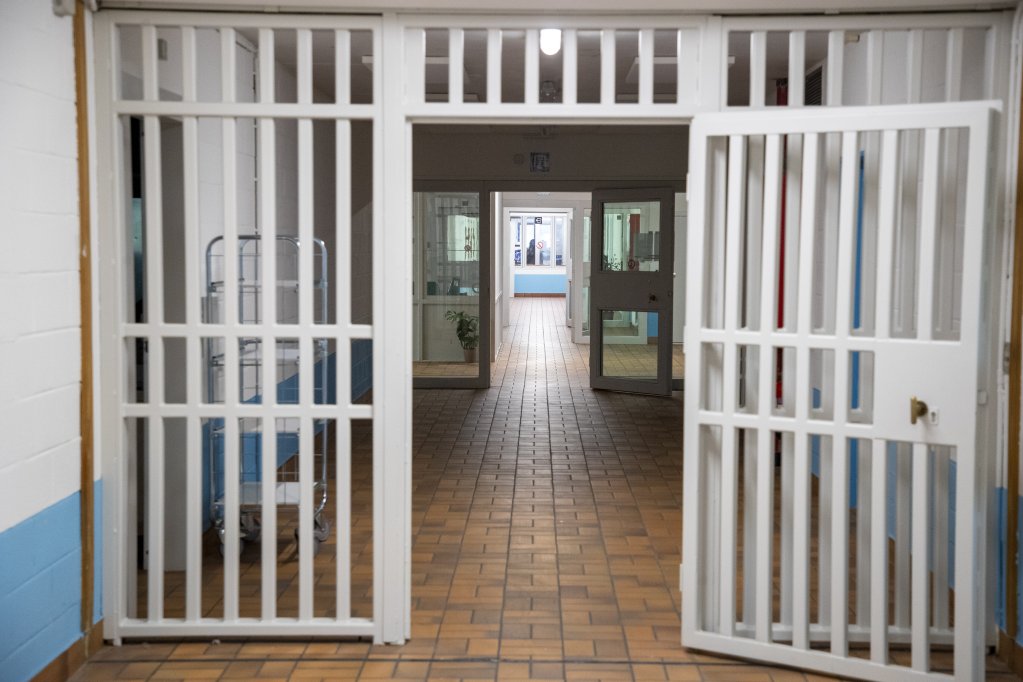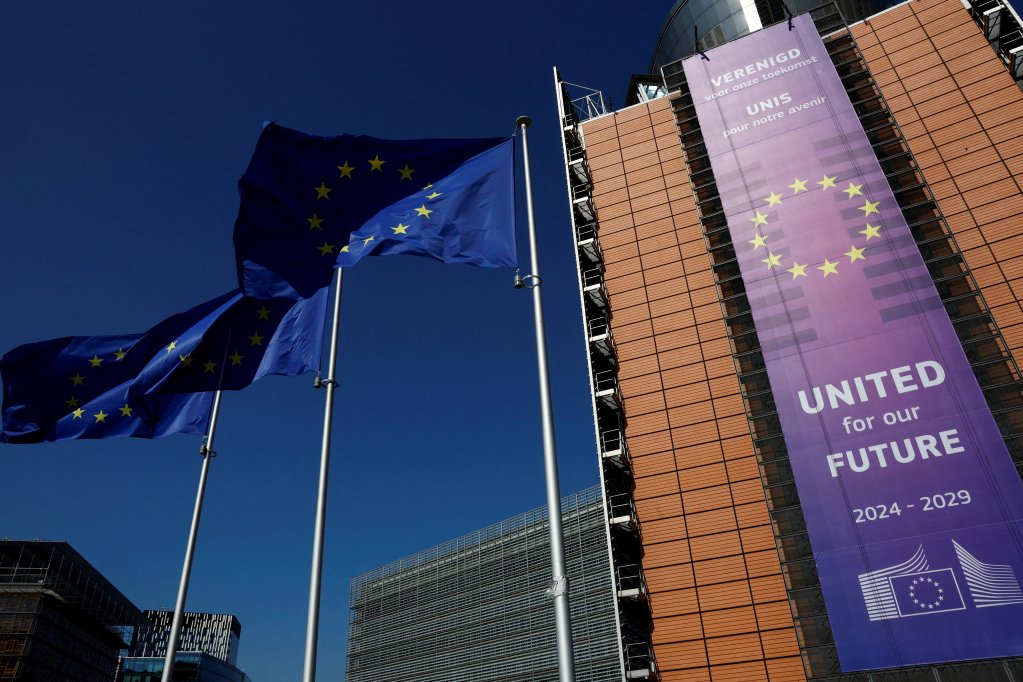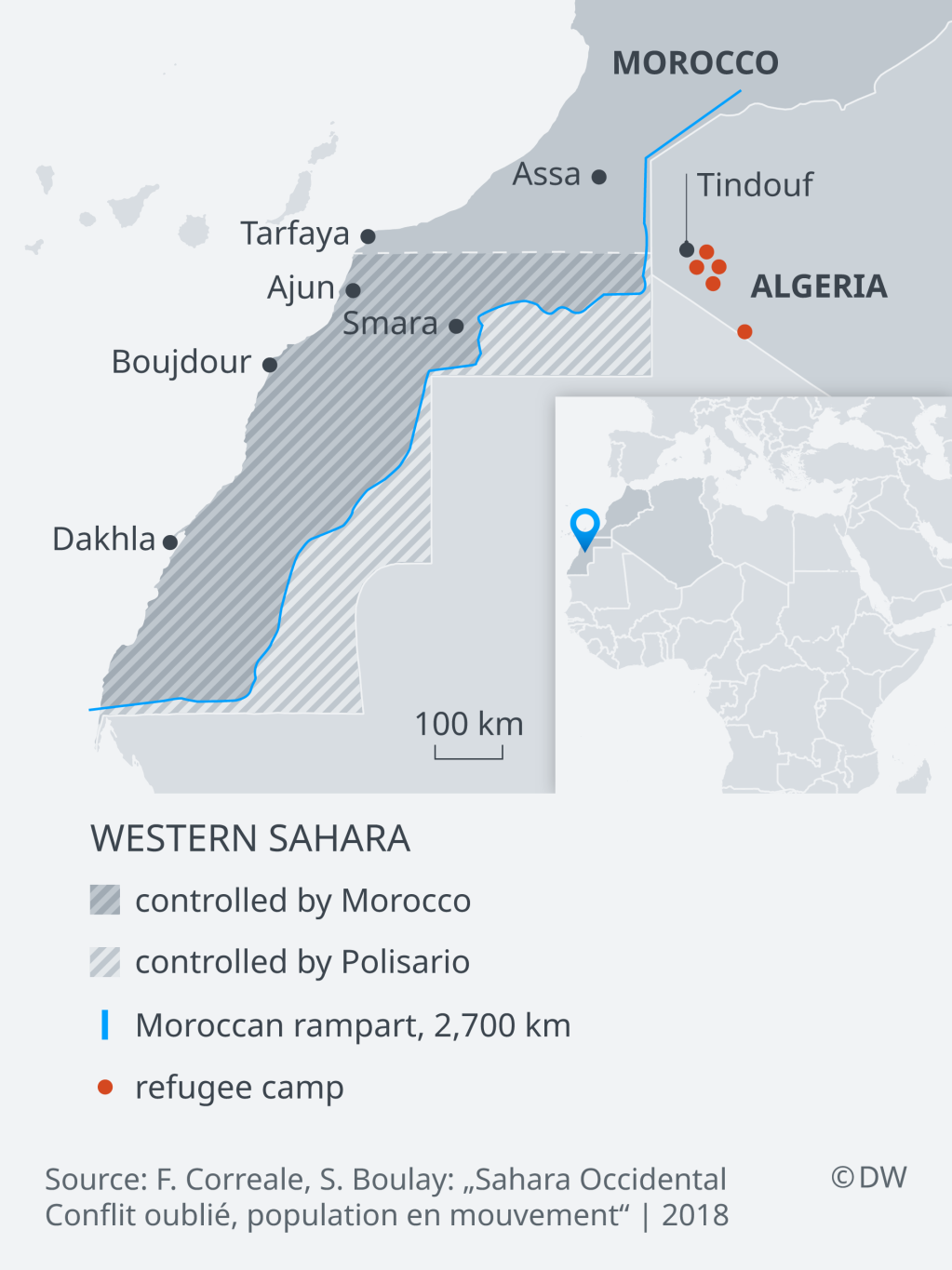Belgium has formally endorsed Morocco's autonomy proposal for the territory Western Sahara, joining key Western allies in backing Rabat’s plan. The move coincides with a new migration-return agreement and expanding EU-Morocco trade ties, from border management to phosphate reserves.
Belgium has become the latest EU country to endorse Morocco's autonomy proposal over Western Sahara calling it "the most adequate, serious, credible and realistic basis to reach a political solution" to the conflict in the region.
The move was formalized in a joint Moroccan-Belgian declaration signed on Thursday (October 23), in Brussels by Moroccan Foreign Minister Nasser Bourita and Belgian Foreign Minister and Deputy Prime Minister Maxime Prévot.
The announcement aligns Belgium with countries such as the United States, France, Germany, Spain, Portugal, and the United Kingdom -- all of which have expressed support for Morocco’s proposal within the UN Security Council. The plan envisions Western Sahara as the "Sahara Autonomous Region" under Moroccan sovereignty, with its own legislative and executive institutions, while Moroccan authorities in Rabat retain control over defense, foreign affairs, national security, justice, and monetary policy.
Bourita hailed Belgium’s endorsement as a "clear acknowledgment of the realistic and legitimate vision championed by King Mohammed VI toward a definitive settlement of this regional dispute."
Read AlsoMorocco's mounting role as EU-migration gatekeeper
Migration agreement accompanies diplomatic shift
Alongside the diplomatic endorsement, Belgium and Morocco have concluded a bilateral agreement aimed at improving cooperation on the repatriation of irregular migrants with criminal convictions.

The deal reflects Belgium’s efforts to tackle one of its most persistent migration challenges: the return of foreign nationals residing illegally in the country. According to the Dutch-language Belgian newspaper De Tijd, three in 10 inmates in Belgian prisons are in the country without legal status. In the first half of 2025, the Belgian Immigration Office repatriated only 717 convicted offenders, primarily to Morocco (147), Albania (115), and Algeria (73).
Under the new arrangement, Morocco has agreed to accept a greater number of offenders living illegally in Belgium, while Brussels extends diplomatic support to Rabat’s autonomy proposal.
Read AlsoBelgium links prison-overcrowding plan to wider migration strategy
Belgium's Moroccan connection
The agreement also reflects the deep ties between the two countries. Belgium hosts one of the largest Moroccan diasporas in Europe, with almost 500,000 Moroccan-born migrants recorded in 2012 -- nearly half of whom have since acquired Belgian nationality.
By 2023, almost 700,000 North Africans lived in Belgium, the majority of them of Moroccan origin. Almost half reside in the Brussels-Capital Region, where people of Moroccan descent make up about 13 percent of the city’s population. Antwerp accounts for 22.7 percent of Belgium’s Moroccan population, followed by Liège (8.8 percent).
These demographic and cultural links have made Morocco one of Belgium’s most important partners in the Maghreb, particularly in migration, trade, and security cooperation.
Read AlsoEU-Maghreb ties: Reversing the old power asymmetry
A shift in European diplomacy
Belgium’s move underscores a broader shift within the European Union. Spain -- the former colonial power in Western Sahara -- formally backed Morocco’s autonomy plan in 2022, breaking with its decades-long stance of neutrality. Germany and Portugal have since followed suit, signaling growing European alignment with Rabat’s position.
However, the European Union as an institution continues to support UN-led negotiations without formally endorsing the autonomy plan. Algeria and the Polisario Front, which advocates full independence for the Sahrawi people in Western Sahara, have denounced Western countries' support for Rabat, insisting instead on a referendum that includes independence as an option.

Beyond migration and trade, the phosphate industry is another key dimension of Morocco’s strategic ties with Europe. The Moroccan state-owned giant OCP Group controls access to a large portion of the world’s phosphate-rock reserves -- including deposits in the disputed region of Western Sahara.
While no new major phosphate export deal between Morocco and Europe has been reported in the past months explicitly under that label, recent trade and origin-labelling agreements between the European Union and Morocco signal deeper economic integration and resource access. For example, in October 2025 the EU and Morocco reached a revised trade accord that includes products from Western Sahara with new origin-labelling measures.
Given the importance of phosphate for agriculture and fertilizer markets -- and Europe’s reliance on imports from North Africa -- this evolving partnership on trade and resource management underscores how economic and geopolitical interests are converging around Morocco’s resource base and its relations with the EU.
Read AlsoEU presents blueprint for new pact for the Mediterranean to address causes of migration
UN position
The Belgian endorsement comes just days before the UN Security Council is expected to vote on extending the mandate of the UN Mission for the Referendum in Western Sahara (MINURSO), which has monitored the ceasefire since 1991.
A leaked draft of the forthcoming UN resolution reportedly describes "genuine autonomy under Moroccan sovereignty" as "the most viable solution" to the five-decade conflict and praises "President Trump’s leadership in resolving the Western Sahara dispute." The draft also calls on all parties to resume dialog "without delay," using the Moroccan autonomy proposal as the sole negotiation framework.
UN Secretary-General António Guterres, in his annual report released Wednesday (October 22), urged the Security Council to extend MINURSO’s mandate for another year, until October 31, 2026, and emphasized the need for "a mutually acceptable political solution."
Read AlsoEurope rejects Morocco's 'political' use of migrants against Spain
A 50-year conflict
The conflict over Western Sahara dates back to 1975, when Spain withdrew from what was then called Spanish Sahara. Morocco subsequently claimed sovereignty over most of the territory, which it now administers as its "southern provinces."

The Polisario Front, backed by Algeria, declared the Sahrawi Arab Democratic Republic (SADR) in 1976, seeking full independence. While dozens of countries have recognized the SADR at various points, it remains outside the United Nations. The UN continues to classify Western Sahara as a non-self-governing territory.
Despite years of ceasefire and mediation, the conflict remains unresolved. The UN describes it as a "low-intensity" standoff, but it has persisted for nearly half a century and claimed an estimated 9,000 lives in the past 16 years.
Read AlsoThe forgotten refugees of Western Sahara
Looking ahead
Belgium’s endorsement of Morocco's autonomy plan marks both a diplomatic realignment and a deepening of bilateral ties between Brussels and Rabat. It also places Belgium among a growing number of Western and Arab nations backing Morocco’s sovereignty claim -- a position that may influence upcoming debates at the United Nations.
With the Security Council preparing to vote on MINURSO’s mandate and the United States signaling a renewed push for negotiations, momentum appears to be shifting toward a resolution framed around autonomy rather than independence.
Read AlsoBelgian court rules government has to accommodate Afghan family seeking asylum
With Belga and Reuters
